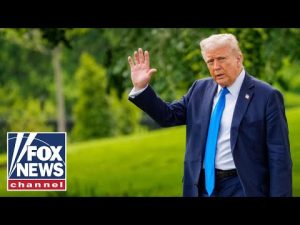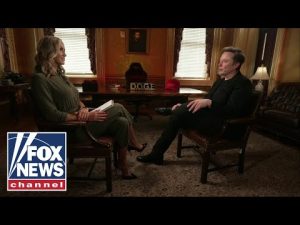In a recent turn of events that has all the makings of a political drama, former President Trump has put Harvard University on notice about its tax-exempt status. Early in the day, Trump made a bold statement on Truth Social, declaring that he intends to strip Harvard of its tax-exempt status, arguing that the institution has earned such a penalty. Trump’s proclamation created quite a stir, putting the Ivy League institution in a bit of a defensive posture. The university quickly responded, stating that there is no legal foundation for revoking its status, citing federal laws that protect against such actions by presidents and senior government officials.
The conversation got even spicier with Harvard’s decision to file a lawsuit against the Trump administration, claiming that their rights under the First Amendment are being violated. Furthermore, it appears that the White House is already flexing its funding muscles, having frozen billions in federal grants to Harvard after the university allegedly refused to comply with a list of demands. It’s a clash of titans: on one side, the former president wielding the power of public opinion, and on the other, an ancient university defending its academic traditions and freedoms.
Adding more intrigue to the storyline, Supreme Court Justice Ketanji Brown Jackson recently weighed in with a rather pointed warning concerning the “relentless attacks” that judges are facing nationwide. While not directly mentioning Trump, her remarks centered around what she sees as a trend of intimidation that threatens the very fabric of democracy. Her comments were delivered at a legal conference in Puerto Rico and seemed to hint that things might be getting a little too hot for those who challenge the judicial system.
Critics of Justice Jackson’s remarks have emerged, with legal commentators calling out her apparent one-sided critique. Some argue that her focus on Trump’s language disregards a broader picture of judicial accountability and criticism that has existed throughout American history. They pointed to past presidents, including Thomas Jefferson and Franklin Delano Roosevelt, who had their own spats with the judiciary, arguing that historical context is vital in understanding today’s battles over judicial respect and criticism.
The conversation is not limited to critiques of Trump alone; it brushes against a wider debate regarding the actions of certain judges. Some legal experts stress that judges are not above reproach and can be questioned for their rulings and behaviors. This argument has sparked heated discussions about judicial power versus executive accountability, an age-old tug-of-war that’s occasionally turned fiery.
As the drama unfolds further, the implications reach far beyond Harvard’s tax status and the scuffles between the judiciary and the executive branch. It raises important questions about the checks and balances integral to American democracy, about the lines drawn in the sand when it comes to criticism, and ultimately, about the principles of justice. While both sides of this debate are gearing up for what could be a prolonged engagement, one thing is clear: the battle lines are set, and the stakes couldn’t be higher. The unfolding story is like a high-stakes chess game, with each move carefully calculated and fraught with political consequences.







